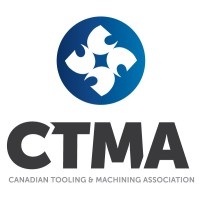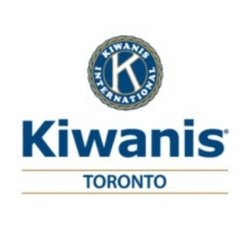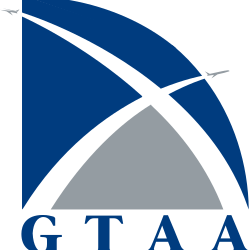Job Grants in Ontario
Employment grants are government-funded programs designed to support employers by covering a portion of the costs associated with training and skill development for their workforce. These grants encourage businesses to invest in the professional growth of their employees, leading to enhanced skills and increased productivity. They are tailored to meet the needs of companies looking to train new hires, improve the skills of current employees, or prepare individuals for employment after training. By offering financial assistance, these grants help reduce the financial burden of training, enabling employers to invest more in the growth and competitiveness of their organization.

Expanded Energy Management Program
Independent Electricity System Operator (IESO)- Maximum amount : 250,000 $
- Up to 50% of project cost
- Agriculture, forestry, fishing and hunting
- Mining, quarrying, and oil and gas extraction
- Utilities
- Construction

Southwestern Ontario Development Fund (SWODF) — Business project loans
Government of Ontario- From $500,000 to $500,000
- Up to 15% of project cost
- Manufacturing

Court Challenges Program (CCP)
University of Ottawa- Maximum amount : 200,000 $
- Other services (except public administration)
- Public administration

EnAbling Change Program
Government of Ontario- No Condition
- All industries

Talent Opportunities Program — Student Work Placement Program
Ontario Chamber of Commerce (OCC)- Maximum amount : 7,000 $
- Up to 70% of project cost
- All industries

- From $5,000 to $150,000
- All industries

WILWorks program — Student Work Placement Program
Excellence in Manufacturing Consortium (EMC)- Maximum amount : 7,000 $
- Up to 50% of project cost
- Manufacturing

AcceleratiON Program
Ontario Creates- From $2,500 to $20,000
- Up to 100% of project cost
- Information and cultural industries

Artiste en résidence canadien en début de carrière dans le domaine de l'urbanisme
University of Toronto (UOFT)- Minimum amount : 50,000 $
- Educational services
- Arts, entertainment and recreation

Food Safety and Growth Initiative
Sustainable Canadian Agricultural Partnership (SCAP)- Maximum amount : 75,000 $
- Up to 50% of project cost
- Agriculture, forestry, fishing and hunting
- Manufacturing
- Wholesale trade
- Transportation and warehousing

Canada-Ontario Job Grant (COJG)
Government of Ontario- Maximum amount : 10,000 $
- All industries

Parliamentary District Policing Program
Public Safety Canada (PSC)- Maximum amount : 50,000,000 $
- Up to 15% of project cost
- Public administration

Community Economic Development (CED)
City of Ottawa- From $5,000 to $50,000
- Educational services
- Health care and social assistance
- Arts, entertainment and recreation
- Other services (except public administration)

FedNor — Economic Development Initiative (EDI)
Federal Economic Development Agency for Northern Ontario (FedNor)- Up to 90% of project cost
- Information and cultural industries
- Educational services
- Arts, entertainment and recreation

Ontario Automotive Investment Strategy (OAIS)
Ministry of Economic Development, Job Creation and Trade (ON)- No Condition
- Manufacturing

Newcomer Settlement Program
Ministry of Labour, Training and Skills Development- No Condition
- Educational services
- Health care and social assistance
- Other services (except public administration)
- Public administration

Next Generation of Jobs Fund
Ministry of Economic Development, Job Creation and Trade (ON)- No Condition
- Agriculture, forestry, fishing and hunting
- Utilities
- Manufacturing

Strategic Jobs Investment Fund (SJIF)
Ministry of Economic Development, Job Creation and Trade (ON)- No Condition
- Manufacturing
- Information and cultural industries
- Finance and insurance
- Health care and social assistance

Occupational Health and Safety Prevention and Innovation Program
Ministry of Labour, Training and Skills Development- No Condition
- Mining, quarrying, and oil and gas extraction
- Construction
- Educational services
- Health care and social assistance

OVIN — Regional Future Workforce Program
Ontario Vehicle Innovation Network (OVIN)- No Condition
- Manufacturing
- Educational services

Hardware Catalyst Initiative
ventureLAB- No Condition
- Manufacturing
- Transportation and warehousing
- Information and cultural industries
- Health care and social assistance

Ontario Junior Exploration Program
Government of Ontario- Maximum amount : 200,000 $
- Up to 50% of project cost
- Mining, quarrying, and oil and gas extraction

Achievement Incentive and Group Sponsorship Grant
Government of Ontario- Maximum amount : 17,000 $
- Construction
- Manufacturing
- Wholesale trade
- Retail trade

Ontario Together Trade Fund (OTTF)
Government of Ontario- From $200,000 to $5,000,000
- Up to 75% of project cost
- Manufacturing

OVIN — Content Partnerships Program
Ontario Vehicle Innovation Network (OVIN)- Maximum amount : 100,000 $
- Manufacturing
- Transportation and warehousing
- Educational services
Discover how much grant funding is available for your business
Subsidize your projects with grants!
Use our free grant estimator to quickly identify the available grant amounts for which your company may be eligible.

Ontario Labour Market Partnerships (OLMP)
Ministry of Colleges and Universities- No Condition
- All industries

Employment Ontario
Government of Ontario- No Condition
- All industries

OBIO — Health to Business Bridge Program
Ontario Bioscience Innovation Organization (OBIO)- No Condition
- Health care and social assistance

Ontario Job Creation Partnerships
Government of Ontario- No Condition
- All industries

OMIF — Music Industry Initiatives
Government of Ontario- From $10,000 to $300,000
- Up to 50% of project cost
- Information and cultural industries
- Arts, entertainment and recreation

Collective Bargaining Information Services
Government of Ontario- No Condition
- Construction
- Health care and social assistance
- Public administration

Cinespace Technician Roster
Indigenous Screen Office (ISO)- No Condition
- Information and cultural industries

Indigenous Economic Development Fund — Business and Community Fund
Government of Ontario- No Condition
- All industries

Advanced Manufacturing Investment Strategy (AMIS)
Ministry of Economic Development, Job Creation and Trade (ON)- Maximum amount : 10,000,000 $
- Up to 30% of project cost
- Manufacturing

Eastern Ontario Development Fund (EODF) — Community economic development projects
Government of Ontario- Maximum amount : 1,500,000 $
- Up to 50% of project cost
- All industries

Skills Development Fund (SDF) — Training Stream
Government of Ontario- No Condition
- Construction
- Manufacturing

Youth Job Connection
Ministry of Colleges and Universities- No Condition
- All industries

Skills Development Fund (SDF) — Capital Stream — GROW Pathway
Government of Ontario- Up to 49% of project cost
- Construction
- Manufacturing
- Health care and social assistance

Francophone Community Grants Program (FCGP)
Government of Ontario- Up to 80% of project cost
- Information and cultural industries
- Educational services
- Arts, entertainment and recreation
- Other services (except public administration)

Labour Force Management Strategies Initiative (LFMSI)
Government of Ontario- Maximum amount : 100,000 $
- Up to 50% of project cost
- Agriculture, forestry, fishing and hunting
- Manufacturing

SkillsAdvance Ontario Pilot
Ministry of Colleges and Universities- No Condition
- All industries

Aboriginal Participation Fund (APF) — Mineral development advisor stream
Government of Ontario- No Condition
- Mining, quarrying, and oil and gas extraction

Aboriginal Participation Fund (APF) — Values mapping and related projects
Government of Ontario- No Condition
- Mining, quarrying, and oil and gas extraction

OTF — Youth Innovations Scale Grant
Ontario Trillium Foundation (OTF)- Maximum amount : 150,000 $
- Up to 15% of project cost
- Educational services
- Health care and social assistance
- Arts, entertainment and recreation

People & Talent Program — Indigenous Workforce Development Stream
Government of Ontario- Maximum amount : 52,500 $
- Up to 75% of project cost
- All industries

Food Security and Supply Chain Fund
Government of Ontario- Up to 50% of project cost
- Agriculture, forestry, fishing and hunting
- Manufacturing

MaRS Momentum
MaRS Discovery District- No Condition
- Wholesale trade
- Information and cultural industries
- Professional, scientific and technical services
- Administrative and support, waste management and remediation services

Regional Economic Growth Through Innovation & Southern Ontario Prosperity Program — Indigenous
Federal Economic Development Agency for Southern Ontario (FedDev)- No Condition
- All industries

Community Funding - Project Funding
City of Ottawa- Maximum amount : 75,000 $
- Health care and social assistance

Forest Biomass Program — Indigenous bioeconomy partnerships stream
Government of Ontario- Maximum amount : 250,000 $
- Up to 80% of project cost
- Agriculture, forestry, fishing and hunting
Access over 4000 different funding opportunities
Try the helloDarwin platform today and find programs that fit your needs
The helloDarwin application makes it easy to unlock grants so your business can grow faster—with less hassle and more impact.

Supported Employment
Ministry of Colleges and Universities- Maximum amount : 7,000 $
- Health care and social assistance

Rural Economic Development (RED) program
Government of Ontario- Maximum amount : 250,000 $
- All industries

Summer Employment Opportunities (SEO) Program
Government of Ontario- Maximum amount : 3,741 $
- Arts, entertainment and recreation
- Accommodation and food services
- Public administration

Workforce Development Stream
Northern Ontario Heritage Fund Corporation (NOHFC)- No Condition
- All industries

Ontario Youth Apprenticeship Program (OYAP)
Government of Ontario- No Condition
- Educational services

Sound Design Program
Indigenous Screen Office (ISO)- No Condition
- Information and cultural industries

Aboriginal Participation Fund (APF) — Education and relationship-building
Government of Ontario- No Condition
- Mining, quarrying, and oil and gas extraction

Co-operative Education Tax Credit
Ontario Ministry of Finance- Maximum amount : 3,000 $
- Up to 25% of project cost
- All industries

Career-Ready with CTMA — Expanding Opportunities
Canadian Tooling & Machining Association (CTMA)- Maximum amount : 15,000 $
- Up to 50% of project cost
- Manufacturing

Employer Health Tax relief (EHT)
Ontario Ministry of Finance- No Condition
- All industries

OAC — Artists in Communities and Schools Projects
Ontario Arts Council (OAC)- Maximum amount : 20,000 $
- Educational services
- Arts, entertainment and recreation

People & Talent Program — Workforce Development Stream
Government of Ontario- Maximum amount : 35,000 $
- Up to 50% of project cost
- All industries

Invest Ottawa Accelerator Program
Invest Ottawa- No Condition
- Information and cultural industries
- Professional, scientific and technical services

OBIO — (WiHI) Training and Wage Subsidies
Ontario Bioscience Innovation Organization (OBIO)- Maximum amount : 20,000 $
- Health care and social assistance

Leadership and Mentorship Grant
The Kiwanis Club of Toronto Foundation- Maximum amount : 40,000 $
- Health care and social assistance

Veterinary Incentive Program (VIP)
Agricultural Adaptation Council (AAC)- Maximum amount : 50,000 $
- Agriculture, forestry, fishing and hunting

Women in Business Program
Nishnawbe Aski Development Fund- Maximum amount : 50,000 $
- All industries

Northern Ontario Development Program (NODP) — Youth Internships — Not-for-Profit
Federal Economic Development Agency for Northern Ontario (FedNor)- No Condition
- All industries

OTF — Seed Grant
Ontario Trillium Foundation (OTF)- From $10,000 to $100,000
- Health care and social assistance
- Arts, entertainment and recreation
- Other services (except public administration)
- Public administration

OAC — Literary Organizations: Operating
Ontario Arts Council (OAC)- No Condition
- Information and cultural industries
- Arts, entertainment and recreation

Experience Ontario 2024
Ontario Ministry of Tourism, Culture and Sport (MTCS)- Maximum amount : 125,000 $
- Up to 50% of project cost
- Arts, entertainment and recreation

Job Opportunity for Youth Grant
Community Foundation of Campbellford/Seymour and Northumberland- Maximum amount : 5,000 $
- Other services (except public administration)

Kenora and Rainy River District Business Accelerator Fund
Northwestern Ontario Innovation Centre (NOIC)- Maximum amount : 10,000 $
- Up to 50% of project cost
- Manufacturing

Durham Community Foundation Community Grants
Durham Community Foundation- No Condition
- Health care and social assistance
- Arts, entertainment and recreation
- Other services (except public administration)

United Way Simcoe Muskoka - Women United
United Way of Greater Simcoe County- Maximum amount : 10,000 $
- Educational services
- Health care and social assistance
Toronto Enterprise Fund (TEF) - Scale ESEs
Enterprising Non-Profits Toronto, enp-TO- Maximum amount : 10,000 $
- All industries
Toronto Enterprise Fund (TEF) - Catalyze New ESEs
Enterprising Non-Profits Toronto, enp-TO- Maximum amount : 100,000 $
- Other services (except public administration)

Access to Justice Bundle Program
Indigenous Peoples Resilience Fund- No Condition
- Other services (except public administration)

Libro Credit Union - Grants & Partnerships
United Communities Credit Union- No Condition
- Finance and insurance
- Professional, scientific and technical services
- Health care and social assistance
- Other services (except public administration)

WSIB Research and Grants Program
Workplace Safety and Insurance Board (WSIB)- Maximum amount : 150,000 $
- Professional, scientific and technical services

Greater Toronto Airports Authority - Propeller Project
GTAA, Toronto Pearson International Airport- From $150,000 to $200,000
- Construction